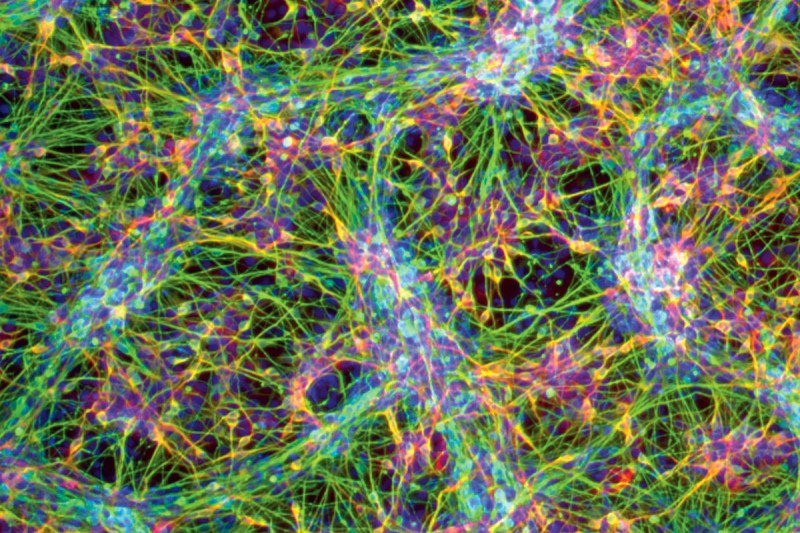
The Starr Foundation announced on January 31 that it would provide renewed support totaling $55 million to the Starr Cancer Consortium, a collaboration among Memorial Sloan Kettering, the Broad Institute of MIT and Harvard, Cold Spring Harbor Laboratory, The Rockefeller University, and Weill Cornell Medical College.
Created in 2006, The Starr Cancer Consortium has provided a model for collaborative research that builds on the complementary strengths of the member institutions. All projects supported by the Consortium involve investigators from two or more of the five participating institutions. To date, 77 projects have been funded.
“Starr Foundation funding has enabled us to forge important alliances while undertaking innovative, highly promising research that would not otherwise have been possible,” says Memorial Sloan Kettering President Craig B. Thompson. “This initiative has proven that collaboration leads to more-rapid advancement of cancer research from the laboratory to clinical applications.”
Several notable accomplishments involving Memorial Sloan Kettering investigators include the discovery of genetic mutations that predict overall survival in patients with myelodysplastic syndrome, and the discovery of how a new melanoma drug works and why it stops working in some patients.
The Starr Foundation also continued its historic commitment to stem cell research with a $50 million gift in March, renewing its support for the Tri-Institutional Stem Cell Initiative (Tri-SCI), which the Foundation established in 2005. The new gift, awarded to the original Tri-SCI members — Memorial Sloan Kettering Cancer Center, The Rockefeller University, and Weill Cornell Medical College — will advance stem cell research at the three institutions.
With support from The Starr Foundation, Tri-SCI laboratories are investigating the properties of embryonic stem cells, which have the potential to differentiate into any cell type in the body, and adult stem cells, which are found in various tissues and can give rise to specific cell types. These studies are opening new avenues for understanding a range of health conditions, including developmental disorders, neurodegenerative diseases, and cancer. The knowledge gained through this research is also laying the groundwork for the design of regenerative therapies to replenish tissues lost to illness or injury.
Under the Tri-Institutional Stem Cell Initiative, investigators work across institutional and disciplinary boundaries to advance scientific understanding in a rapidly expanding field of biomedicine. The Tri-SCI funds technology development, seminars and symposia to foster intellectual exchange, and fellowships to train future leaders in stem cell research.
“The goals of the Tri-SCI are truly ambitious, and only a collaborative venture of this magnitude could provide the resources and expertise needed to achieve them,” adds Dr. Thompson. “All of us at Memorial Sloan Kettering are grateful to The Starr Foundation for its vision and generosity in supporting this vital area of research.”
At Memorial Sloan Kettering’s Brain Tumor Center, neurosurgeon and researcher Viviane S. Tabar is studying the potential use of neural and pluripotent stem cells to repair brain tissue following injury or disease. In a recent study, Dr. Tabar showed for the first time that brain tumors called glioblastomas can generate their own blood vessels from tumor stem cells. She and her colleagues analyzed nearly 100 human tissue samples from Memorial Sloan Kettering’s tumor bank and found that blood vessels carry the same common genetic mutations as the tumors themselves. These findings may help to explain why glioblastomas are resistant to treatment.
On May 14, the Starr Cancer Consortium provided funding support for the annual Harold C. Neu Symposium of the Infectious Diseases Society of New York. Titled An Exploration of the Convergent Biology of Cancer and Infectious Diseases, the half-day symposium was held in Memorial Sloan Kettering’s Rockefeller Research Laboratories Conference Center and brought together physicians and scientists from multiple disciplines to explore the under-appreciated similarities between anti-microbial therapies — particularly of chronic infections — and newly emerging cancer targeted therapies. Symposium participants included symposium director and Memorial Sloan Kettering infectious disease specialist Michael S. Glickman; Charles L. Sawyers, Chair of Memorial Sloan Kettering’s Human Oncology and Pathogenesis Program (HOPP); physician and HOPP member David B. Solit; and Yi-Wei Tang, Chief of the Clinical Microbiology Service. Among the participants from beyond Memorial Sloan Kettering were Levi Garraway, MD, PhD, and Deb Hung, MD, PhD, both of the Broad Institute, a Starr Cancer Consortium member.



